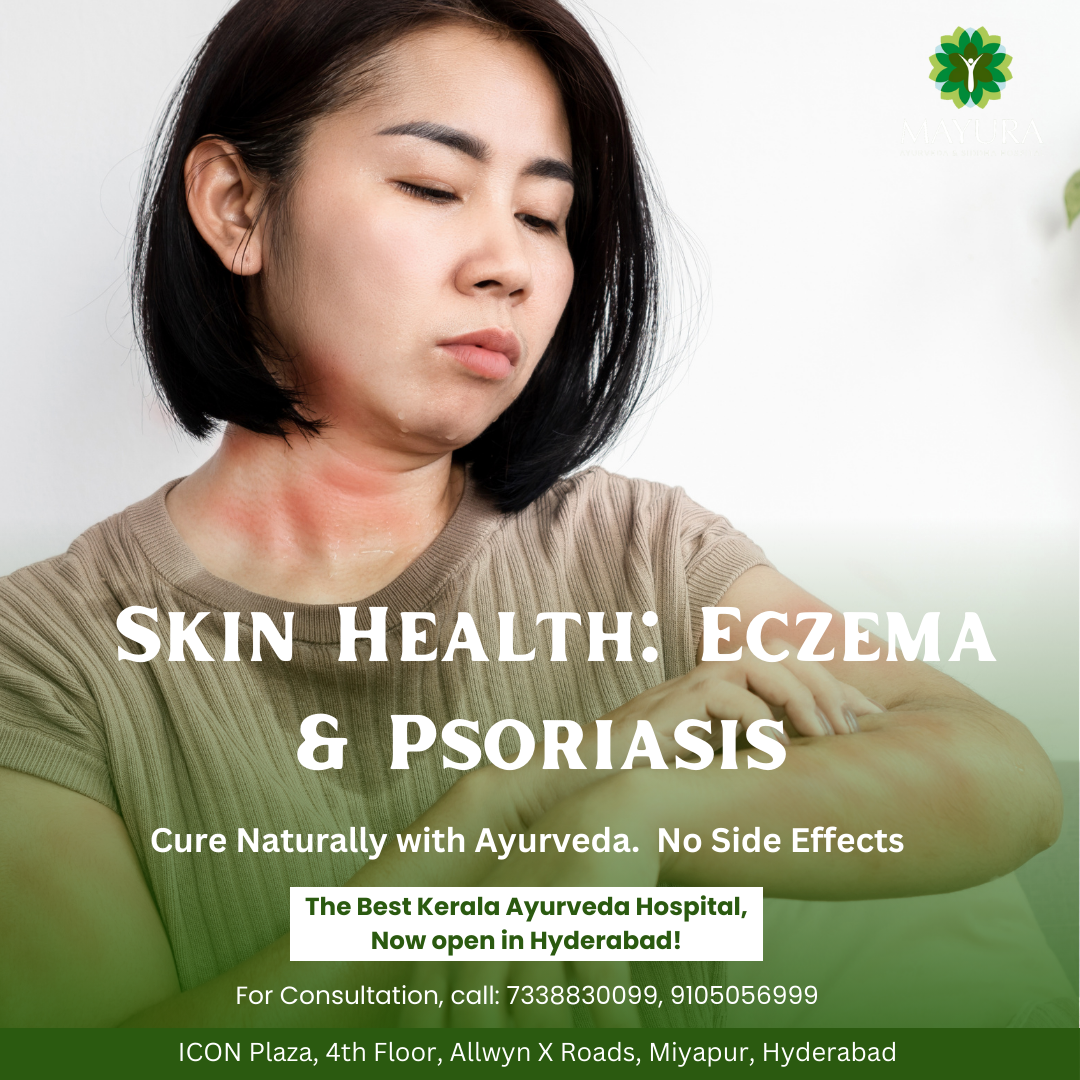Eczema and psoriasis are chronic skin conditions that affect millions of people worldwide, causing discomfort and impacting quality of life. While both conditions share similarities in terms of symptoms and appearance, they have distinct characteristics and require different approaches to management. Understanding the causes, symptoms, and treatment options for eczema and psoriasis is essential for effectively managing these conditions and maintaining healthy skin.
Understanding Eczema
Eczema, also known as atopic dermatitis, is a chronic inflammatory skin condition characterized by dry, itchy, and inflamed skin. It often appears in childhood and can persist into adulthood. Common symptoms of eczema include redness, swelling, crusting, and oozing of the affected skin. Triggers for eczema flare-ups may include stress, allergens, certain fabrics, and environmental factors.
Managing Eczema
Managing eczema involves a combination of lifestyle changes, skincare routines, and medical treatments. Avoiding known triggers such as harsh soaps, fragrances, and irritating fabrics can help reduce flare-ups. Moisturizing regularly with gentle, fragrance-free emollients can help hydrate the skin and prevent dryness. In some cases, topical corticosteroids or other prescription medications may be necessary to control inflammation and itching.
Understanding Psoriasis
Psoriasis is a chronic autoimmune skin disorder characterized by the rapid growth of skin cells, leading to thick, red, scaly patches known as plaques. These plaques can appear anywhere on the body but are commonly found on the scalp, elbows, knees, and lower back. Psoriasis flare-ups may be triggered by stress, infections, certain medications, or changes in weather.
Managing Psoriasis
Like eczema, managing psoriasis involves a multifaceted approach that includes lifestyle modifications, topical treatments, phototherapy, and systemic medications. Moisturizing the skin, avoiding triggers, and practicing stress management techniques can help reduce the frequency and severity of psoriasis flare-ups. Topical treatments such as corticosteroids, vitamin D analogs, and retinoids can help reduce inflammation and promote healing of psoriatic plaques.
Skincare Routines for Healthy Skin
Regardless of whether you have eczema or psoriasis, adopting a consistent skincare routine is essential for maintaining healthy skin. Use mild, fragrance-free cleansers and moisturizers to keep the skin hydrated and protected. Avoid harsh exfoliants or scrubs that can irritate sensitive skin. Sun protection is also crucial, as sunburn can trigger flare-ups in individuals with both eczema and psoriasis.
Seeking Professional Guidance
If you’re struggling to manage eczema or psoriasis on your own, don’t hesitate to seek professional help. Dermatologists specialize in diagnosing and treating skin conditions and can provide personalized treatment plans tailored to your specific needs. They may recommend prescription medications, phototherapy, or other advanced treatments to help control your symptoms and improve your quality of life.
Conclusion
Eczema and psoriasis are chronic skin conditions that require ongoing management to keep symptoms under control. By understanding the triggers, symptoms, and treatment options for eczema and psoriasis, individuals can take proactive steps to care for their skin and minimize flare-ups. With proper skincare routines, lifestyle modifications, and medical interventions, it’s possible to achieve healthy, comfortable skin despite these challenging conditions.
















